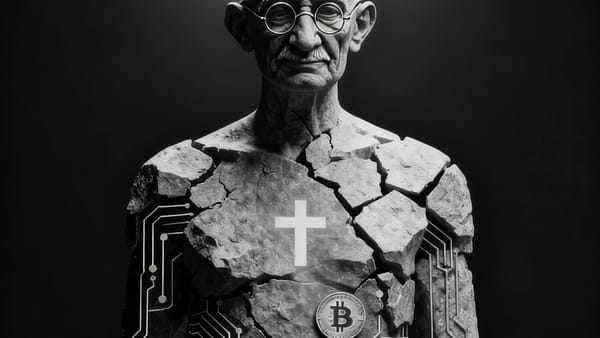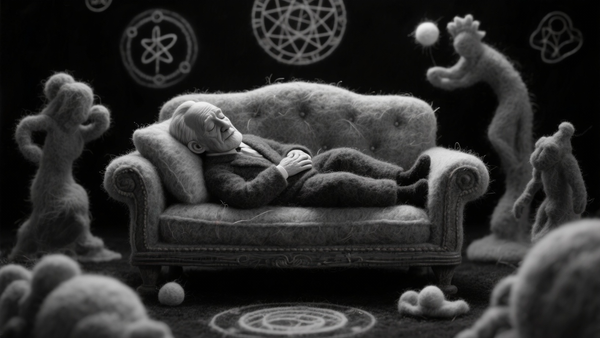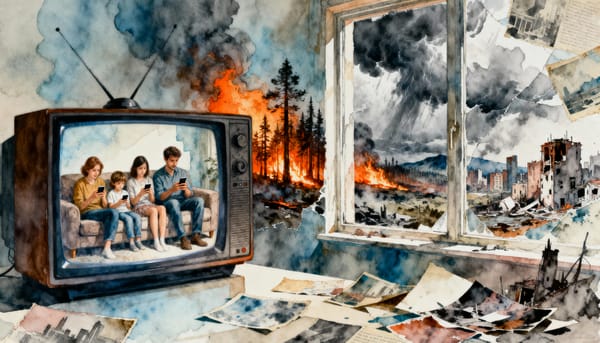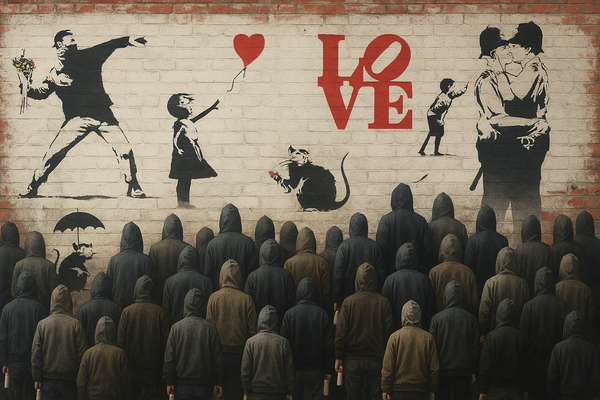Narrar para dominar: Las historias gobiernan tu mundo
Un análisis sobre cómo las historias moldean tu percepción, legitiman el poder y deciden lo que crees que eliges. Porque tal vez, las historias te viven.
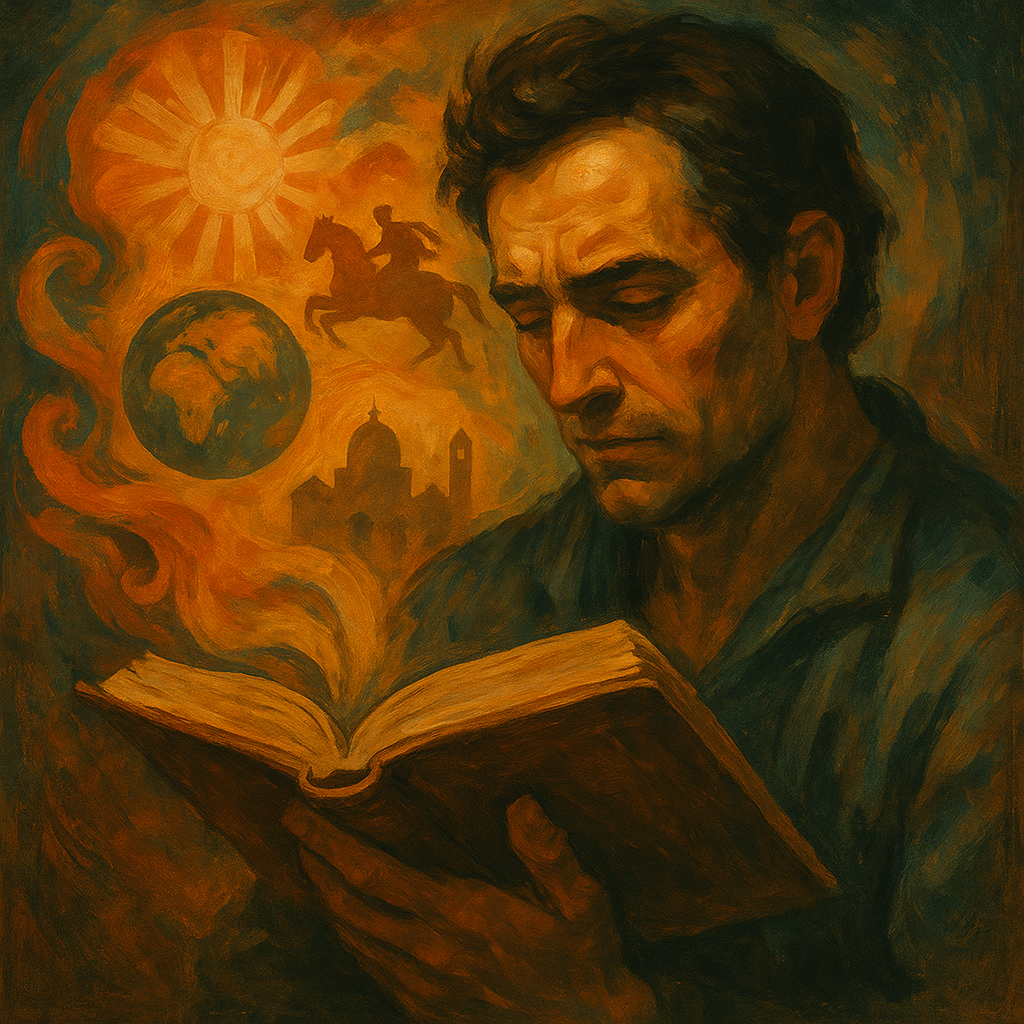
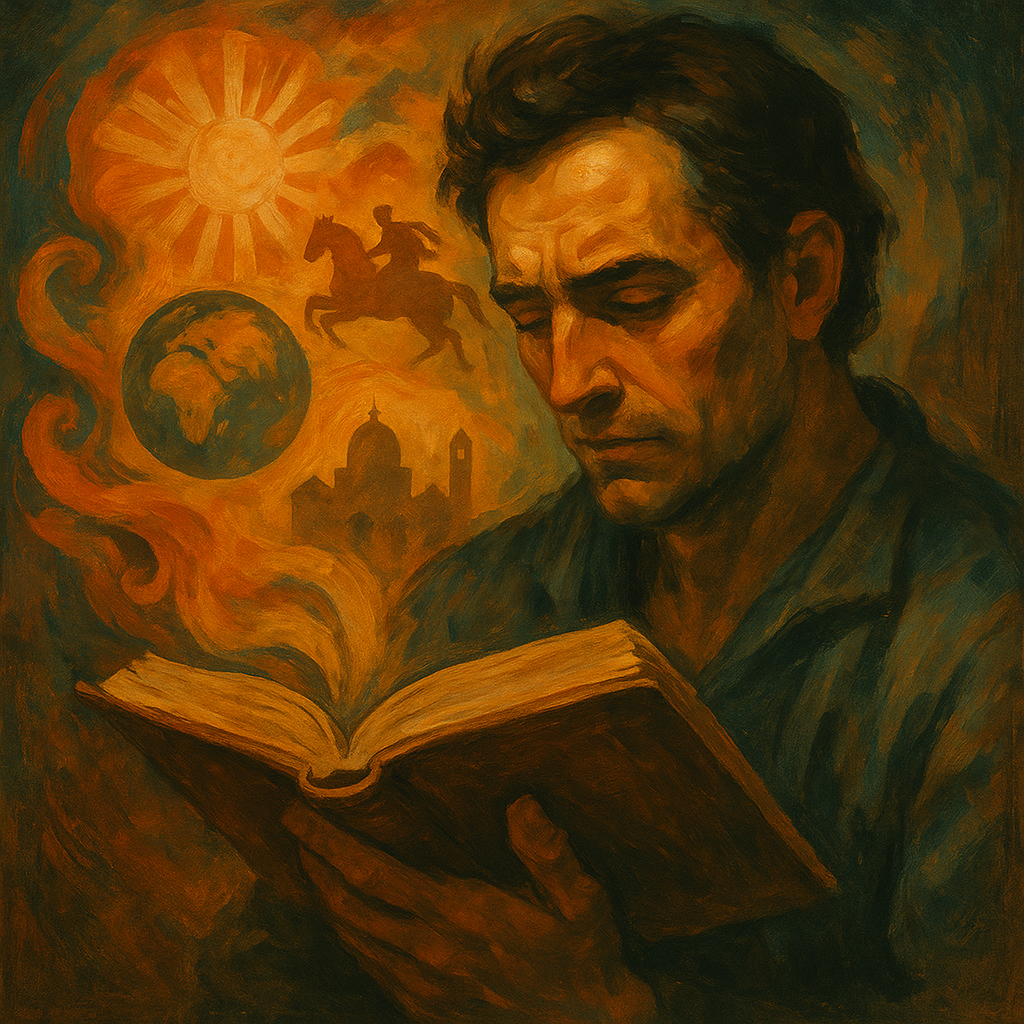
🟡 Introducción
Las sociedades humanas no se sostienen solo por la ley o por la fuerza. Se sostienen por las historias que contamos… y por aquellas que nos contaron antes de poder elegir. No necesitas un ejército para controlar el mundo. Solo necesitas una buena historia.
Historias que nos dicen quiénes somos, qué está bien, qué está mal, a quién debemos temer… y a quién debemos obedecer. Tu forma de vivir, de amar, de trabajar, de consumir… no la decidiste tú. Fue escrita antes. Por otros. En nombre de algo más grande.
Y tú solo naciste dentro del relato.
“Un relato que, cuanto más se repite, más real parece… aunque no lo sea.” No estamos hablando de cuentos ni de películas. Hablamos del arma más poderosa que ha usado el ser humano para organizar, influir… y dominar: las historias.
El ser humano es un animal narrativo
Nuestro cerebro no está diseñado para procesar datos. Está diseñado para entender historias. Desde las pinturas en las cuevas hasta los mitos de creación, narrar fue la forma que encontramos para darle sentido al caos.
Antes de saber leer, ya sabíamos imaginar. Antes de las leyes, ya teníamos relatos que explicaban por qué unas cosas estaban bien… y otras no.
No fue la fuerza lo que nos unió como especie. Fue la capacidad de imaginar juntos. De creer en cosas que no existen físicamente: dioses, patrias, dinero o futuro.
“Las ficciones compartidas nos permiten cooperar en grandes números.” — Yuval Noah Harari
Todo grupo humano necesita una historia. Sin relato, no hay dirección. Sin relato, no hay sentido. Sin relato, no hay “nosotros”. Las historias no son un adorno cultural. Son el pegamento invisible de cualquier civilización.
Las capas del relato: cómo el poder fabrica la realidad
La realidad, tal como la percibimos, no es un terreno firme. Es una cebolla de capas narrativas, colocadas una tras otra a lo largo de la historia. Cada época, cada sistema, cada grupo de poder ha contado su propia historia. Y esas historias no se borran: se superponen.
Desde los chamanes que hablaban con los espíritus hasta los reyes que decían tener sangre divina, cada grupo de poder ha usado las historias para legitimar su posición. Los imperios no solo levantaban ejércitos: levantaban monumentos, escribían mapas, dictaban leyes. Todo eso sostenía un relato: esto es lo normal, esto es lo justo, esto es lo verdadero.
Con el tiempo surgieron nuevas ficciones: la ciencia, la nación, el progreso. Y más adelante: el mercado, la productividad, el éxito personal como medida del valor humano.
A medida que las clases dominantes evolucionaron, también lo hizo la complejidad del relato. Hoy, entender la realidad exige atravesar muchas capas superpuestas. Casi todas diseñadas para ocultar, justificar o normalizar estructuras de poder.
El dinero como metarrelato
Y en medio de todo, un relato sobresale por encima del resto: el del dinero. El dinero no solo compra cosas. Compra tiempo, atención, prestigio, verdad. Condiciona qué historias se escuchan… y cuáles no. Lo que no genera beneficio, rara vez tiene voz.
El relato de la democracia
Durante siglos, las historias dominantes eran contadas por unos pocos: sacerdotes, monarcas, dueños de imprentas. El resto solo podía escuchar. O obedecer.
Pero entonces surgió una nueva narrativa: una historia que afirmaba que todos podíamos formar parte del relato. Que el poder no venía de arriba, sino del pueblo. Que cada voz contaba.
Eso fue la democracia. Una ficción poderosa que, por primera vez, proponía que el relato colectivo debía escribirse entre todos. Cambió el mundo: constituciones, derechos civiles, elecciones, parlamentos…
Pero, como toda historia, también evolucionó. Y no siempre en la dirección esperada. Aunque la democracia prometía participación, el dinero —cada vez más— empezó a dictar las reglas del juego.
La ilusión de la elección
Hoy, muchos de los relatos que creemos elegir ya vienen prefabricados: por medios financiados por corporaciones, por partidos que responden a intereses, por algoritmos entrenados para darnos lo que creemos que queremos… que es exactamente lo que quieren que queramos.
Los medios de comunicación no solo informan: seleccionan. Las redes sociales no solo conectan: moldean. Las películas no solo entretienen: programan.
Y mientras tú crees estar eligiendo qué ver, qué pensar, qué comprar… cuando te das cuenta, ya estás dentro de un relato escrito para ti.
Salir del relato ajeno
Nos enseñaron a pensar que la realidad es demasiado compleja. Que no se puede cambiar. Que lo mejor es adaptarse, competir y sobrevivir. Pero ¿y si esa complejidad fuera parte del truco? Una cortina de humo para que el poder siga donde siempre ha estado: arriba, disperso, invisible.
Mientras abajo… nos dividimos. Nos enfrentamos. Defendemos intereses de gente a la que no le importamos lo más mínimo.
Frente a eso, no necesitamos más certezas. Necesitamos lucidez, humildad y sentido común. Aceptar que entender el mundo requiere esfuerzo. Que la verdad no grita. Se busca. Se escucha.
Y sobre todo, que no somos enemigos entre nosotros.
La verdadera resistencia es la comprensión.
La voluntad de mirar más allá del relato que nos dieron.
De pensar con pausa.
Y de dejar espacio a la duda, sin miedo.
Entonces sí… podremos empezar a vivir... sin que otro piense por nosotros.
Epílogo
Las historias siempre han tenido poder. Desde los mitos fundacionales que sostenían tribus enteras, hasta las grandes narrativas religiosas y políticas que dieron forma a imperios.
Pero lo que ha cambiado radicalmente no es solo el contenido de las historias, sino la velocidad, la cantidad y la intencionalidad con la que se propagan.
Antes, había tiempo para contemplar. Hoy, las historias se han industrializado. Ya no vivimos las historias. Las historias nos viven.
Y en medio de ese ruido, distinguir lo real se convierte en un acto de resistencia. Porque tal vez la verdadera libertad no consista en inventarnos una narrativa más bonita, sino en algo mucho más difícil: ver la realidad tal como es. Sin filtros. Sin adornos. Sin que otro piense por ti.
Cierre
Y sí… Todo este discurso sobre el poder de las historias, la manipulación y los relatos que te controlan… te ha llegado a través de una red social. Filtrado por un algoritmo que ni siquiera sabe si estás aquí porque buscabas respuestas… o solo porque te quedaste viendo un video de gatos un segundo de más.
Pero mira… si el sistema me deja colarme por una rendija… quizá aún hay esperanza.
(Publicado por URBAWAKE – urbawake.com)


